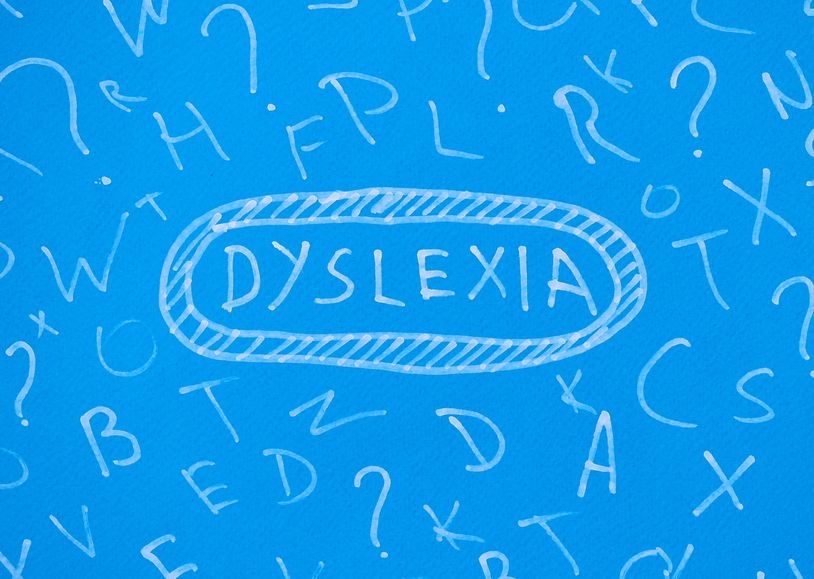What is dyslexia?

- Dyslexia is a neurobiological disorder. Research has shown that brain plasticity decreases through childhood. It takes four times as long to intervene in fourth grade as it does in late kindergarten (NICHD) because of brain development and because of the increase in content for students to learn as they grow older.
- Children at risk for reading failure can be reliably identified even before kindergarten. Extensive evidence exists that supports the fact that early intervention is critical. Struggling readers who do not receive early intervention tend to fall further behind their peers.
- Psychological and clinical implications of poor reading development can be prevented/minimized if we screen and intervene as early as possible.
- While early literacy intervention is the ideal scenario, it is important to know that it is never too late for a child to learn to read.
What are the characteristics of dyslexia?

Some of the distinguishing characteristics of a dyslexic learner are: difficulty learning to read, write, or spell, difficulty in following oral and written instructions, illegible handwriting, difficulty in staying on task, easily distracted, confusion in sequence of letters and symbols, delayed spoken language, and confusion about directions in space.
The following may co-occur with dyslexia: Attention deficit hyperactivity disorder (ADHD), executive functioning issues, memory impairments, disorder in mathematics (dyscalculia), disorder in writing problems (dysgraphia), emotional disorders, and behavioral disorders.

Below is a checklist of some the common signs of dyslexia. This list does not include all signs possible and all signs do not have to be present for a person to have dyslexia.
- Sounding out words (and sight words) that should be instantly recognized
- Reading a word correctly on one line, and then reading the same word incorrectly elsewhere in the text
- Slow deliberate reading or fast scrambled reading
- Significant difficulty with spelling
- Skipping lines in the text or parts of sentences
- Omitting words in the sentence (prepositions, articles, or other words)
- Adding words in the sentence (prepositions, articles, or other words)
- Semantic substitutions (home for house, yell for shout)
- Transposition of letters within words (broad for board)
- Transposition of letters within words with wild guessing
- Vowel switching (bug for bag)
- Switching initial or final sounds (tack for back, man for mat)
- Adding letters to a word (blad for bad)
- Dropping/adding/skipping/substituting syllables in multisyllabic words, especially words with suffixes (park or parked for parking)
- Transposition of letters in writing (simle for smile or golb for glob)
- b/d or p/q confusion (brink for drink, did for bid)
Learn more or get help today!
Altitude Tutoring LLC